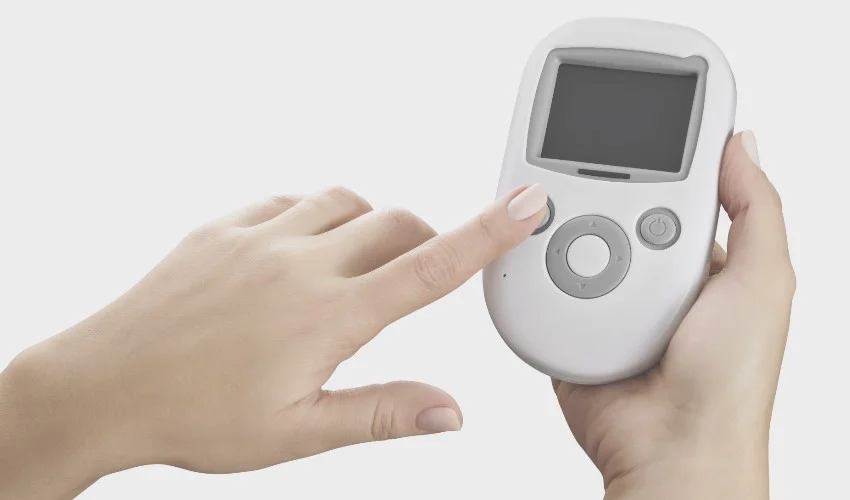Living with type 2 diabetes can be challenging, as it requires ongoing management of blood sugar levels, diet, exercise, and medication. In addition to these essential components, incorporating mindfulness practices into daily life can greatly benefit individuals with type 2 diabetes and their caregivers. Mindfulness, rooted in ancient traditions, is the practice of focusing one’s attention on the present moment without judgment. This article will explore the benefits of mindfulness for managing type 2 diabetes, provide practical tips on how to incorporate mindfulness practices into daily routines, and discuss the scientific evidence supporting the efficacy of mindfulness in diabetes management.
The Benefits of Mindfulness for Type 2 Diabetes
Stress Reduction
Chronic stress can have a detrimental impact on blood sugar control and overall well-being for individuals with type 2 diabetes. Mindfulness practices, such as meditation and deep breathing exercises, have been shown to reduce stress levels. Studies have demonstrated that mindfulness-based stress reduction (MBSR) programs can improve glycemic control and reduce stress-related symptoms in individuals with type 2 diabetes. By incorporating mindfulness techniques into daily life, individuals can better manage their stress levels, leading to improved overall health.
Emotional Well-being
Managing a chronic condition like type 2 diabetes can lead to emotional challenges, including anxiety and depression. Mindfulness practices can help individuals develop emotional resilience and improve their overall well-being. By focusing on the present moment, individuals can better manage their emotions and develop a positive mindset. Mindfulness-based interventions have been found to be effective in reducing anxiety and depression symptoms in individuals with type 2 diabetes. Incorporating mindfulness into daily life can support emotional well-being and enhance the overall quality of life.
Improved Self-Care and Adherence
Maintaining a healthy lifestyle is crucial for managing type 2 diabetes effectively. Mindfulness practices enhance self-awareness, allowing individuals to make conscious choices about their diet, physical activity, and medication adherence. By being more present in their daily activities, individuals can cultivate healthier habits and take better care of themselves. Mindful eating, for example, involves paying attention to the sensory experience of eating, such as the taste, smell, and texture of food. This practice can help individuals with type 2 diabetes make healthier food choices, prevent overeating, and improve digestion.
Blood Sugar Management
Mindfulness practices have been found to have a positive impact on blood sugar management. By reducing stress levels and improving emotional well-being, individuals may experience more stable blood glucose levels. Mindfulness-based interventions have also been associated with better insulin sensitivity, decreased HbA1c levels (a measure of long-term blood sugar control), and improved overall glycemic control. Incorporating mindfulness into daily life can contribute to better blood sugar management and reduce the risk of diabetes-related complications.
Incorporating Mindfulness into Daily Life
Mindful Eating
Mindful eating involves paying attention to the sensory experience of eating and cultivating a non-judgmental awareness of food choices. By practicing mindful eating, individuals can develop a healthier relationship with food and make choices that support their diabetes management. Some practical tips for mindful eating include:
- Slow down during meals and savor each bite.
- Notice the flavors, textures, and smells of the food.
- Listen to hunger and satiety cues and eat until comfortably full.
- Minimize distractions while eating, such as television or electronic devices.
By practicing mindful eating, individuals can foster a positive and mindful approach to their nutrition, supporting better blood sugar control.
Meditation and Deep Breathing
Taking a few minutes each day for meditation or deep breathing exercises can provide numerous benefits for individuals with type 2 diabetes. Find a quiet and comfortable space, sit in a relaxed position, and focus on your breath. Simply observe each breath without judgment, allowing thoughts to come and go. This practice can promote relaxation, reduce stress, and improve mental clarity. Meditation and deep breathing exercises can be incorporated into daily routines by:
- Setting aside a specific time each day for mindfulness practice.
- Starting with just a few minutes and gradually increasing the duration.
- Using guided meditation apps or videos to assist in the practice.
- Incorporating deep breathing exercises into moments of stress or before meals.
By engaging in regular meditation and deep breathing exercises, individuals can enhance their overall well-being and better manage their diabetes.
Mindful Physical Activity
Engaging in physical activity mindfully can enhance the overall experience and promote well-being for individuals with type 2 diabetes. Instead of viewing exercise as a chore, focus on the sensations of movement, the rhythm of your breath, and the joy of being active. Mindful physical activity can also help individuals maintain a consistent exercise routine, leading to improved blood sugar control and cardiovascular health. Some tips for incorporating mindfulness into physical activity include:
- Choose activities that you enjoy and that align with your fitness level.
- Pay attention to the sensations in your body as you move.
- Notice the rhythm of your breath and synchronize it with your movements.
- Appreciate the environment around you while being active.
By approaching physical activity mindfully, individuals can derive greater pleasure and benefit from their exercise routines.
Mindful Stress Management
Stress management is crucial for individuals with type 2 diabetes, as stress can have a significant impact on blood sugar levels. Engaging in stress-reducing activities with a mindful approach can promote relaxation, improve mood, and help maintain healthy stress levels. Some practices that can be incorporated into daily life include:
- Yoga: Practicing yoga poses and breathing exercises mindfully can help reduce stress and promote flexibility and strength.
- Tai Chi: This gentle form of exercise combines movement and meditation, promoting relaxation and reducing stress levels.
- Walking in Nature: Taking mindful walks in nature can provide a calming and grounding experience, reducing stress and promoting well-being.
By practicing mindful stress management techniques regularly, individuals can prevent stress from negatively impacting their blood sugar levels.
Scientific Evidence on Mindfulness for Type 2 Diabetes
Numerous studies have investigated the efficacy of mindfulness practices in diabetes management. Here are some key findings:
Mindfulness-Based Stress Reduction (MBSR): A randomized controlled trial published in the Journal of Psychosomatic Research found that an MBSR program improved glycemic control and reduced psychological distress in individuals with type 2 diabetes. The study demonstrated the potential benefits of mindfulness-based interventions in enhancing diabetes management.
Mindfulness-Based Interventions (MBIs): A systematic review and meta-analysis published in the Journal of Behavioral Medicine demonstrated that MBIs significantly improved glycemic control and psychological well-being in individuals with type 2 diabetes. The review highlighted the positive impact of mindfulness-based approaches on diabetes-related outcomes.
Mindful Eating Research published in the Journal of the Academy of Nutrition and Dietetics suggests that practicing mindful eating can positively impact weight management, glycemic control, and psychological well-being in individuals with diabetes. The study emphasized the importance of mindful eating in promoting healthy eating behaviors among individuals with diabetes.
Incorporating mindfulness practices into daily life can be a valuable addition to the management of type 2 diabetes. Mindfulness techniques provide benefits such as stress reduction, improved emotional well-being, enhanced self-care, and better blood sugar control. By practicing mindful eating, meditation, physical activity, and stress management, individuals can experience improved overall health and well-being. The scientific evidence supports the effectiveness of mindfulness in diabetes management, making it a worthy addition to a comprehensive diabetes care plan.
Remember, mindfulness is a skill that requires practice and patience. Start with small steps and gradually incorporate mindfulness into your daily routine. With time, you will reap the benefits of this powerful practice in managing your type 2 diabetes.




